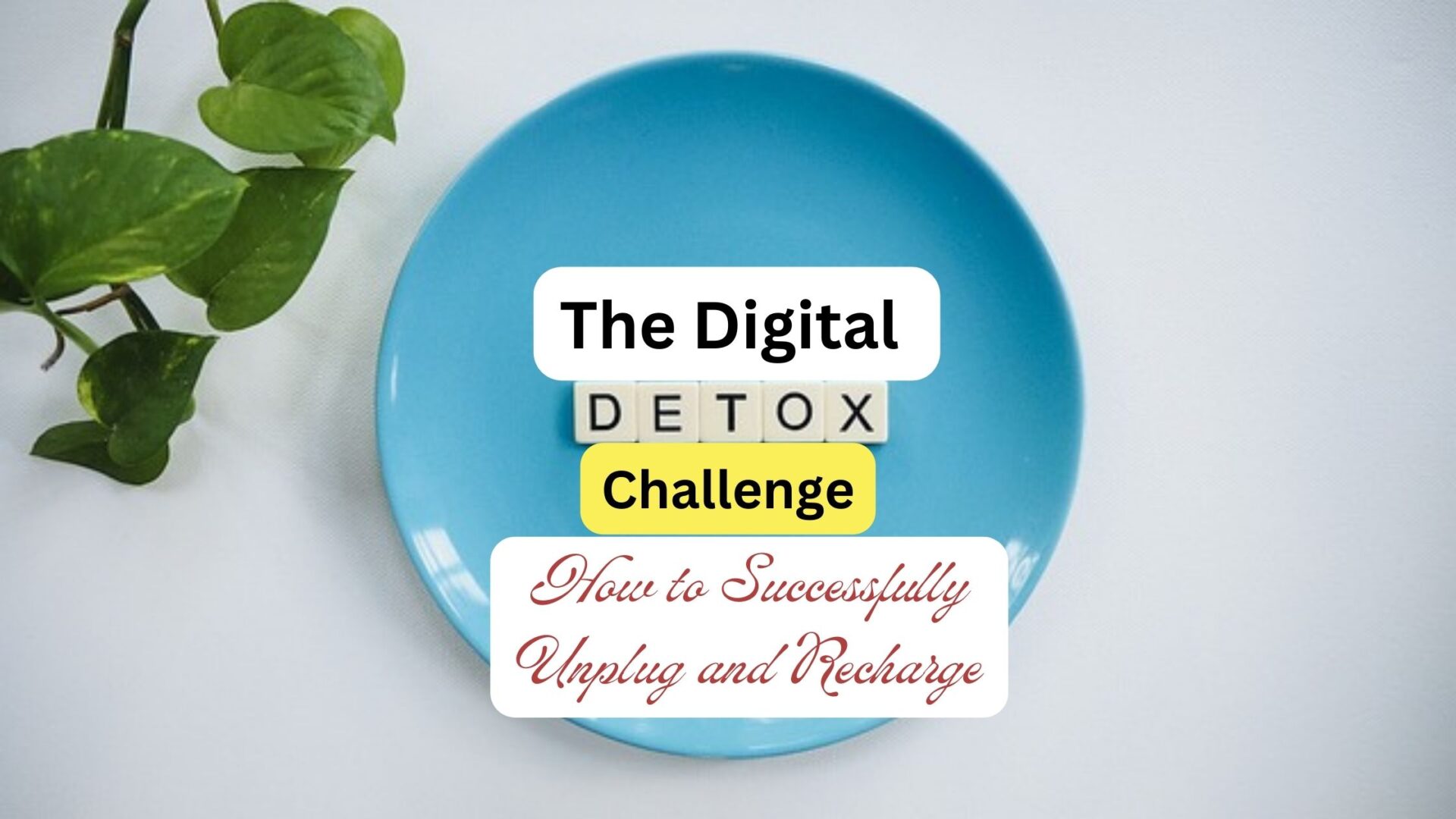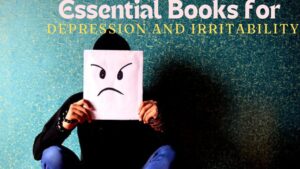Introduction:-
The Digital Detox Challenge: How to Successfully Unplug and Recharge

In the hustle and bustle of the digital age, we grapple with an inundation of notifications, emails, and social media streams. Technology, while providing convenience, has inadvertently ushered in heightened stress, anxiety, and a sense of detachment from our surroundings. It is precisely in this context that the concept of a digital detox emerges—a deliberate endeavor to disconnect from digital devices and forge deeper connections with ourselves, our relationships, and the world around us. In this article, we will delve into the myriad benefits of a digital detox and equip you with practical strategies to unplug, recharge, and rejuvenate effectively.
What is a Digital Detox Challenge?
A digital detox is a temporary break from electronic devices like smartphones, computers, and tablets. Its purpose is to reduce stress, improve mental well-being, and provide relief from the constant bombardment of digital information. The duration of a digital detox can vary from a few hours to a few days or even weeks, depending on individual preferences and goals.
Benefits of a Digital Detox:
- Improved Mental Health:
- Reducing digital screen time and social media exposure can alleviate feelings of anxiety, depression, and loneliness.
- Taking a break allows the mind to rest and reset, promoting a more positive mental state.
- Better Sleep:
- Blue light emitted by screens can disrupt sleep cycles, making it difficult to fall and stay asleep.
- A digital detox can help regulate sleep patterns and enhance the quality of rest.
- Enhanced Focus and Productivity:
- Without the distractions of notifications and social media, individuals can concentrate better on tasks, resulting in increased productivity and efficiency.
- Stronger Relationships:
- Spending quality time with loved ones without digital distractions strengthens relationships and fosters deeper connections.
- Increased Mindfulness:
- A digital detox encourages individuals to be present in the moment, allowing them to appreciate their surroundings and experiences more fully.
How to Successfully Unplug and Recharge
- Establish Clear Objectives:
- Identify your reasons for embarking on a digital detox and set realistic goals.
- Determine whether your goal is to reduce stress, improve sleep, or reconnect with loved ones.
- Select a Suitable Timeframe:
- Choose a manageable period for your digital detox.
- Begin with a few hours or a day and gradually extend it as you become more comfortable.
- Inform Your Circle:
- Communicate your digital detox plans to friends, family, and colleagues.
- This will help set expectations and minimize interruptions.
- Craft a Plan:
- Create a schedule of non-digital activities.
- Engage in reading, walking, hobbies, or spending time with loved ones.
- Set Boundaries:
- Establish specific times and places where digital devices are prohibited.
- Refrain from using devices in certain areas, such as the bedroom or during meals.
- Leverage Technology Wisely:
- Use apps that promote digital well-being.
- Utilize screen time tracking apps or apps that block certain apps during designated periods.
- Reflect and Learn:
- After completing your digital detox, take time to reflect on your experience.
- Identify how you feel and what you’ve gained.
- Use these insights to make lasting changes to your digital habits.
How a Digital Detox Can Improve Mental Health
In today’s digitally-saturated world, the relentless barrage of notifications, emails, and social media posts can have profound effects on our psychological well-being. To combat these negative impacts, the concept of a digital detox—a deliberate hiatus from electronic devices—has gained traction. Does it hold the key to improved mental health? Let’s dive into the benefits and insights surrounding this modern-day practice.

Benefits of a Digital Detox:
- Reduced Anxiety and Stress: Unplugging from digital devices eliminates the constant pressure to respond immediately, allowing your mind to relax and de-stress.
- Improved Mood and Well-being: Taking a break from social media can help break the cycle of comparison and self-criticism, leading to a more positive self-image and enhanced mood.
- Better Sleep: Reducing screen time, especially before bed, can help regulate your sleep patterns. Improved sleep quality is directly linked to better mental health.
- Enhanced Focus and Productivity: Without the constant distractions of notifications, you can concentrate better on tasks, leading to a sense of accomplishment and increased self-esteem.
- Stronger Interpersonal Connections: Spending quality time with loved ones without the interference of digital devices can strengthen relationships and provide emotional support.
- Increased Mindfulness: A digital detox encourages you to be present in the moment, fostering mindfulness and a deeper appreciation for your surroundings and experiences.
Tips for a Successful Digital Detox:
- Set Clear Goals: Determine why you want to do a digital detox and what you hope to achieve. This clarity will help you stay motivated.
- Choose a Realistic Timeframe: Start with a manageable period, such as a few hours or a day, and gradually extend it as you become more comfortable.
- Inform Others: Let friends, family, and colleagues know about your digital detox plans to manage expectations and reduce interruptions.
- Plan Engaging Activities: Fill your time with activities that don’t involve screens, such as reading, exercising, or spending time in nature.
- Establish Boundaries: Create specific times and places where digital devices are off-limits, such as during meals or in the bedroom.
- Use Technology Wisely: Utilize apps that promote digital wellness, like those that track screen time or block certain apps during specified periods.
Reflect and Learn: After your digital detox, reflect on how you feel and what you’ve gained from the experience. Use these insights to make long-term changes to your digital habits.
How Does a Digital Detox Affect Sleep Quality?
In the modern era, characterized by pervasive connectivity, the utilization of digital devices has become prevalent, permeating various facets of our daily existence. Nevertheless, this incessant exposure to digital devices can exert deleterious effects on the quality of our sleep. Consequently, a digital detox, which entails abstaining from electronic devices, can significantly enhance sleep patterns and promote overall well-being. This article explores the mechanisms through which a digital detox can achieve these benefits.

The Impact of Digital Devices on Sleep
- Blue Light Exposure:
Devices like smartphones, tablets, and computers emit blue light, which can disrupt melatonin production, a hormone that regulates sleep. Exposure to blue light, particularly in the evening, can delay sleep onset and disturb the sleep cycle. - Mental Overactivity:
Engaging with digital content keeps the brain active and alert, making it difficult to relax and fall asleep. Scrolling through social media, watching videos, or playing games can contribute to mental stimulation and hinder sleep. - Stress and Anxiety:
The bombardment of notifications and the pressure to stay connected can heighten stress and anxiety. These emotions can further impede relaxation and sound sleep. - Inconsistent Sleep Habits:
Erratic screen use, especially late at night, can lead to inconsistent sleep patterns and poor sleep hygiene. This irregularity affects the quality of sleep and makes it challenging to maintain a consistent sleep schedule.
Benefits of a Digital Detox on Sleep Quality
- Enhanced Melatonin Production: Limiting blue light exposure from electronic devices, particularly before bedtime, can help normalize melatonin production. This hormone is crucial for regulating the sleep-wake cycle, leading to easier sleep onset and better sleep quality.
- Increased Relaxation: With fewer digital distractions, your mind can relax more effectively, promoting a tranquil state of mind. This enhanced relaxation helps you fall asleep faster and experience deeper, more restorative sleep.
- Reduced Stress and Anxiety: Stepping away from the digital world can alleviate stress and anxiety levels, creating a more peaceful and conducive environment for restful sleep.
- Improved Sleep Hygiene: Practicing a digital detox encourages healthier sleep hygiene habits. Establishing a consistent bedtime routine, creating a comfortable and conducive sleep environment, and avoiding caffeine and alcohol consumption before bed can all contribute to better sleep.
Tips for a Successful Digital Detox to Improve Sleep
- Set a Digital Curfew: Establish a rule to turn off all electronic devices at least one to two hours before bedtime. This allows you to engage in relaxing activities that promote sleep, such as reading, taking a bath, or practicing mindfulness.
- Create a Sleep-Friendly Bedroom: Make your bedroom a digital-free zone. Remove electronic devices from the room to minimize distractions and create an environment that is conducive to sleep.
- Use Blue Light Filters: If you must use digital devices in the evening, consider using blue light filters or apps that reduce the emission of blue light, which can interfere with sleep. Many devices have built-in settings for this purpose.
- Establish a Bedtime Routine: Develop a consistent bedtime routine that signals to your body that it’s time to wind down. This can include activities such as reading, meditating, or doing gentle stretches.
- Maintain a Regular Sleep Schedule: Try to go to bed and wake up at the same time every day, even on weekends. Consistency helps reinforce your body’s natural sleep-wake cycle.
- Engage in Offline Activities: Replace screen time with activities that promote relaxation and well-being. Engage in hobbies, spend time with loved ones, or practice mindfulness and meditation.
Conclusion
The digital detox challenge is an excellent way to break free from the constant demands of the digital world and reconnect with what truly matters. By setting clear goals, planning engaging activities, and reflecting on the benefits, you can successfully unplug and recharge, leading to a healthier, more balanced life. Embrace the challenge and discover the positive impact it can have on your mental health, relationships, and overall well-being.








